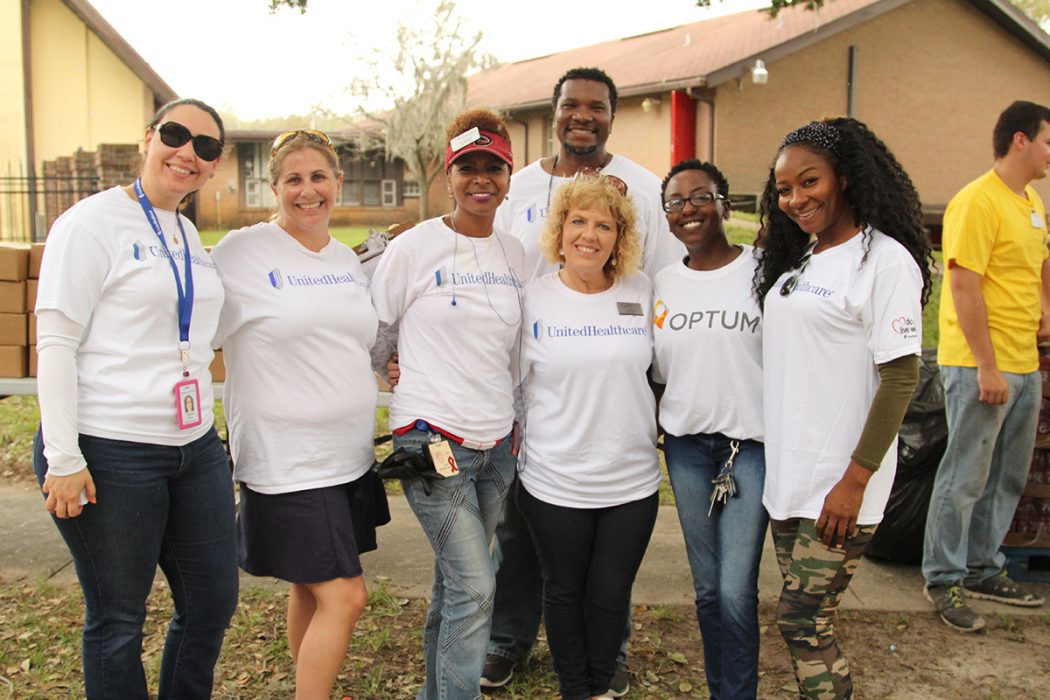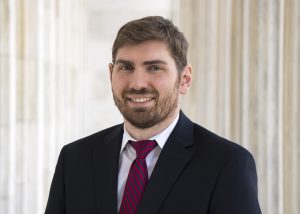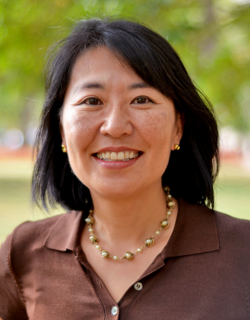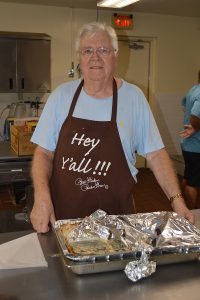For more than 35 years, employees at Lutheran Social Services (LSS) have been working to nourish hungry Northeast Florida residents though a wide array of hunger-relief initiatives.
“Food insecurity is a major problem in our community that affects more people than you might realize,” said Mary Strickland, president and CEO of Lutheran Social Services of Northeast Florida. “One in five people living in Duval County doesn’t know when or where they will get their next meal. That means you are likely to run into someone who is food insecure every day, whether it’s another parent at your child’s school or someone driving the car next to you.”
Helping to alleviate hunger was a top priority when members from a consortium of Lutheran churches and Jacksonville community leaders got together to incorporate LSS in 1979.
The nonprofit’s first initiative was to start its Nourishment Network, a food bank located on Jessie Street, that fed hundreds of thousands of food-insecure families. In 2014, the nonprofit sold the warehouse to Farm Share and strategically shifted from operating a large food bank to running a smaller food pantry and managing specific hunger-relief programs.
In rebranding its Nourishment Network outreach to focus on specific populations it believed were slipping through the cracks, LSS started four programs targeting food insecurity – Backpack Program, Health Begins Before Birth, Serving Our Seniors, and the LSS Community Food Pantry.
The LSS Nourishment Network comprises 17 percent of Lutheran Social Services’ annual budget of $5 million. It has an operating budget of $250,000, and takes in approximately $667,000 in in-kind food donations for a total of $917,000.
The LSS Backpack Program provides nutritious food to school children receiving free or reduced lunches during the school week. Food is also sent home with students each Friday to provide healthy meals and snacks over the weekend. In addition, nutritional support is made available through the summer months. The agency sends an average of 900 bags of food home with the students every month.
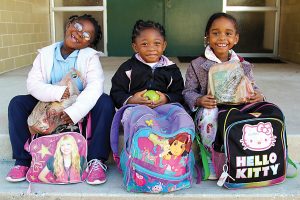
Three little girls are happy to receive backpacks filled with food and supplies from Lutheran Social Services.
Health Begins Before Birth is an initiative that aims to reduce Duval County’s infant mortality rate by providing healthy food and nutritional education to high-risk expectant mothers. The program has delivered powerful results since its inception, distributing nearly 170,000 pounds of food to at-risk pre-natal women and helping to ensure in the delivery of many full-term healthy babies.
Serving Our Seniors is a program where bags of food from the LSS food pantry are delivered door-to-door every month to approximately 840 seniors who live in low-income housing complexes throughout Jacksonville. LSS works with service coordinators at each building to identify the residents most in need.
The LSS Community Food Pantry, located at 4615 Philips Highway, is open to hungry clients five days a week. Individuals can receive food once every month and must be Duval County residents. The food LSS distributes comes from Farm Share, Feeding Northeast Florida, and Feeding 904, as well as through private donations and public food drives. The pantry serves approximately 2,000 individuals each month.
Overall, LSS served approximately 10,500 people last year through its hunger-relief programs and helped tens of thousands over the past 10 years when it operated a comprehensive food bank, said Strickland.
“Hunger has many faces in our community, from working families to the elderly and the disabled. Hunger does not discriminate,” Strickland said. “Many of the people we serve are forced to choose between buying food or other essentials such as rent, utilities, or life-saving medications. Although there are some who are chronically food-insecure, often our food outreach is temporary, giving them an opportunity for a new beginning,” Strickland said.
Strickland recalled one such family, which LSS served over the last few years. “The father was working here in town, with the mother taking care of three young children while actively searching for work herself,” she said. “We provided them with food during this transition period to ease the burden for their family while they got back on their feet. Our goal for every person we work with is to help them become self-sustainable so that they won’t need our assistance long term.”
LSS is supported by United Way, the Jim Moran Foundation, UnitedHealthcare, Walmart, American Legion Post 197, the American Legion Auxiliary Yulee Chapter, and the Beaches Car Wash, as well as individual donors and local churches.
“Building awareness of the food insecurity problem in our city is the first step. We have come a long way in spreading the word, but many don’t realize their neighbors or co-workers are food insecure. We need to continue speaking up for the food insecure and working together to find long-term solutions for our neighbors in need. Donations are essential,” Strickland emphasized. “We have incredible community partnerships with other hunger-relief organizations that supply us with food to distribute to those in need. While food drives are certainly helpful, large organizations like ours have relationships and contacts that enable us to obtain quality food at low costs.”
LSS is always in need of volunteers and food donations, but especially seeks financial support from the community. “LSS relies on monetary donations to ensure the food is delivered, and that we can continue participating in community-wide distributions to help the largest number of people in the most efficient way possible,” Strickland said.

